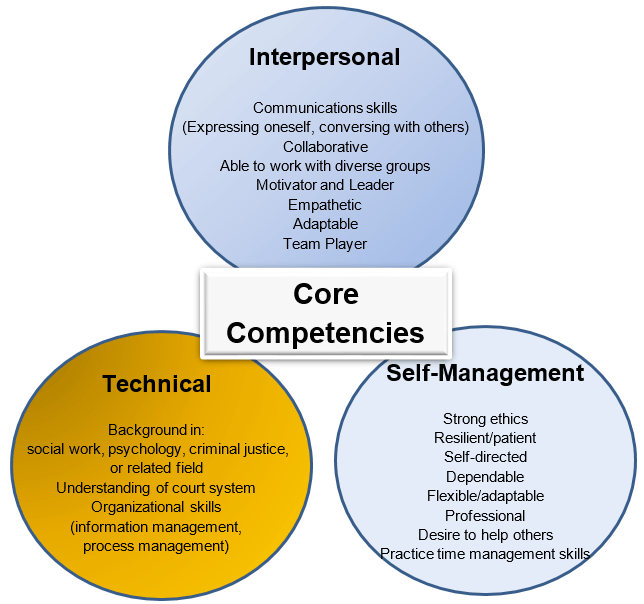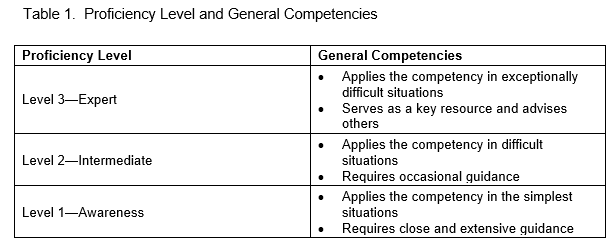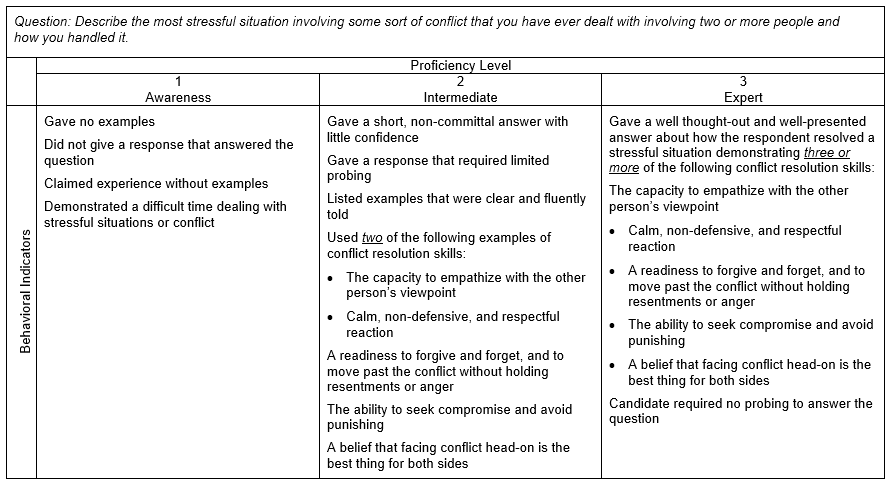
This story was written by Jody Sundt, Sara Johnson, and Leslie Wells and was originally published in Perspectives, the Journal of the American Probation and Parole Association.
A movement is gaining momentum to shift the culture of corrections, including how probation officers manage offenders in the community (Taxman & Belenko, 2012). Rather than solely focusing on tracking compliance and sanctioning probation violations, more departments are switching to an evidence-based approach that focuses on reducing criminogenic risks and needs with proven strategies that improve public safety.
While there has been progress in training employees in these evidence-based practices (Chadwick, Dewolf, & Serin, 2015), significant challenges remain in building the organizational capacity to support the high levels of treatment fidelity needed to realize public safety goals and reach large numbers of offenders (Salisbury, Sundt, & Boppre, in Press). Organizational policies and practices, for example, need to be aligned with new expectations about how probation officers should perform their jobs. Similarly, we need models to ensure that agencies are hiring people into the system with the skills and orientations necessary to be successful (Fixen, Naoom, Blase, Friedman, & Wallace, 2005).
New hires especially can impact the culture of the probation department and must be selected based on who possesses the competencies required for the position. Utilizing research-based guidelines when conducting the interview process can ensure employers are selecting their future workforce from a pool of applicants who are ready and able to embrace the shift from probation referee to rehabilitation coach (Lovins, Cullen, Latessa & Jonson, 2018).
A critical aspect of implementing evidence-based practices in community supervision is selecting staff who possess–or who can acquire–the competencies required to be an effective change agent.” – Indiana Office of Court Services.
The School of Public and Environmental Affairs’ Executive Education team at Indiana University collaborated with the Indiana Office of Court Services, including the Office’s Judicial Conference Probation Committee and the Probation Officers Advisory Board, with the goal of reducing recidivism by identifying the knowledge, attitudes, skills, and behaviors probation officers should have in order to implement evidence-based strategies. The project would also establish best practices for the hiring process through the creation of the Indiana Probation Officer Professional Development Project’s Interview Guide.
The Interview Guide is intended to help those who are conducting interviews have a better understanding of what qualities they should look for when interviewing potential probation officers. In April 2018, the guides were distributed to chief probation officers and supervising judges in all of Indiana’s 92 counties.
Developing the Process
In order to accomplish its goal, the team began by hosting focus groups in three locations across the state, consisting of approximately 40 probation officers, assistant chiefs, and chief probation officers.
The team also interviewed various judges throughout the state of Indiana to gather their input on the personal and professional qualities they believed would produce the best possible probation officer candidates for the future of corrections.
The results from those focus groups and interviews and a review of the research on core correctional practices revealed consistent themes that researchers could use as they began developing their recommendations. In addition to a solid foundation in evidence-based correctional practices, the focus group participants agreed that probation officers need to have certain personal qualities in order to be successful: a strong ethical framework, patience, empathy, a team-player mentality, an openness to innovation, and a desire to help others.

On the professional side, most participants agreed that a successful probation officer needs to be self-directed, dependable, trustworthy, and resilient. In addition, the best candidate would need solid communication and time management skills, the ability to manage diverse groups and individuals, and the ability to adapt to and manage change.
By examining these results, performing a job analysis for Indiana probation officers, and reviewing previous data and research, three core competency areas were identified that included the skills and traits future probation officers should possess if the system is to move from a compliance-focused to an intervention-based system.
These core competency areas were combined with other behavioral interview recommendations to create the Indiana Probation Officer Professional Development Project’s Interview Guide, intended to be used during the probation officer interview process. The guide sets forth a clear outline on the type of interview that should be conducted and the competencies on which the interviewer should focus during the interview.
Best Practices for Interviews
The interview guide recommends three main phases for a face-to-face interview:
- Introduction and Rapport Building
- Competency Aligned Behavioral Questions
- Closing
Adhering to a structured interview process—during which all candidates are asked the same questions in the same order and are evaluated using the same rating scale—gives each candidate the same opportunity to provide information that can be accurately and consistently assessed, which is a legally sound practice.
Interviewers should implement a combined situational/behavioral interview model that allows interviewees to demonstrate their potential for success by providing specific examples of how they have handled similar previous situations. This allows interviewers to gather information from candidates about their actual behavior during past experiences that demonstrates competencies required for the job. The underlying premise is the best predictor of future behavior on the job is past behavior under similar circumstances. This also gives the interviewer an opportunity to ask probing questions to better understand an interviewee’s previous experience. However, probing questions should be kept as consistent as possible from one candidate to another.
Lastly, the interviewer should focus on determining whether the candidate’s traits and skills align with those found in each the three key core competency areas. This includes a separate set of questions and rankings for each section: interpersonal skills, technical skills, and self-management skills.
During the Interview
During the competencies assessment portion of the interview, the candidates should be ranked based on their answers using a consistent, pre-determined scale. The use of a proficiency scale with behavioral indicators helps the interviewer focus on the most relevant information and ensures consistency. The use of proficiency scores facilitates decision-making and can be particularly helpful distinguishing between similar candidates.

Table 2 provides an example of an interview question assessing the interpersonal competency “dealing with stressful situations and conflict.” Behavioral indicators of proficiency levels are identified that allow the interviewer to accurately assess candidates’ strengths and weaknesses in dealing with stressful situations and conflict.

Technical competencies can be assessed using questions that correspond to applicants’ levels of prior experience. For example, an entry-level applicant may be asked about their use of computer systems and organizational skills, which are foundational technical competencies for the work.
Question: Indiana probation officers must be proficient with the use of computer systems and demonstrate organizational skills at a high level. Give an example of a time when you used software as an organizational tool.
More experienced applicants can be asked about working with people in criminal justice or a related field.
Question: Probationers face barriers on their path towards rehabilitation and successful completion of probation. Give an example from a work or volunteer experience when you helped a probationer or someone in a similar position overcome challenges.
Follow up questions might include: What obstacles did the person or family that you assisted face? What steps did you take to help them overcome them?
By prioritizing the competency areas and levels of experience, interviewers are able to remain focused on the end goal of hiring new probation officers who would be the best candidates to succeed in the role of probation officer.
Supporting the Use of Evidence-Based Practices
In addition to adhering to the newly implemented hiring guidelines, courts in Indiana have additional tools they can use to ensure both newly hired probation officers and current officers have the necessary support system to stay current on best practices in their field. The state of Indiana provides ongoing, annual training opportunities for officers to increase the technical knowledge and skills.
Utilizing best practices in human resources management, such as those featured in the Indiana Probation Officer Professional Development Project’s Interview Guide, can help probation departments achieve the larger goal of relying on evidence-based practices in the probation field and other divisions of the justice system.
When employers have an evidence-based framework as a foundation on which to build their hiring process, they can be better equipped to select future probation officers with the necessary competencies to build a firm and fair relationship with offenders as opposed to focusing on enforcement alone. These probation officers can strive to become a partner in the process to reduce recidivism by rewarding and encouraging positive behaviors that will lead to safer communities and good lives for former offenders.
Acknowledgment and Corresponding Author Information:
The authors wish to thank and acknowledge Mary Anna Weber and Matthew Greenwood for their contributions to Indiana Probation Officer Professional Development Project’s Interview Guide. SPEA Executive Education provides custom leadership and management programs for national and local clients in health care, social work, transportation, nonprofits, state and federal government, criminal justice, and public safety. Correspondence may be directed to Sara Johnson, Indiana University Purdue University Indianapolis, School of Public and Environmental Affairs, 801 W. Michigan St., BS 4088, Indianapolis, IN 46202; Email: smj3@iu.edu
